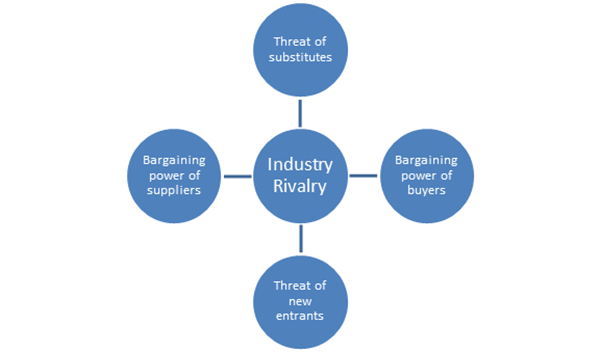The 12 Greatest Dangers Of AI

A 2024 „AI Report“ from UST, a digital transformation software and services company, found that 93% of the large companies it polled said AI is essential to success. Enterprises have a moral—if not legal—responsibility to use artificial intelligence in a way that enhances rather than replaces their workforces. Employers who integrate AI and simultaneously provide opportunities for retraining, upskilling, and transitioning employees to new AI-based roles are the enterprises using AI in an ethically defensible way. When developers store and process large datasets that may be attractive to scammers, it boosts the risk of data breaches. Learn how Tableau uses AI analytics to equip our users with the best possible data, allowing them to make informed decisions about their business.
Environmental impact
If you or an enterprise uses a generative AI tool and it makes a mistake, who is accountable for that error? What if, for example, the AI in cfo vs controller a health care system makes a false diagnosis, or a loan is unfairly denied by an AI algorithm? The use of artificial intelligence in consequential decision-making can quickly obscure responsibility, raising important questions about AI and accountability.
Research techniques using AI have produced new insights into the human genome and have sped the discovery of new pharmaceuticals. And while the long-promised self-driving cars are not yet in widespread use, AI-based driver-assist systems like lane-departure warnings and adaptive cruise control are standard equipment on most new cars. „And as long as people are fooled into thinking this is real content, it will be a problem.“ One notable incident happened in 2023, when a New York lawyer faced judicial scrutiny for submitting court filings citing fictious cases that had been made up by ChatGPT. The lawyer acknowledged using ChatGPT to draft the document and told a federal judge that he didn’t realize the tool could make such an error. As AI use becomes more widespread, so do the risks of ethical and privacy violations.
Does AI compromise data privacy?
One estimate says that the cost for a fully implemented AI solution for most businesses ranged from $20,000 to well in the millions. That’s not always a bad thing, but when it comes to producing consistent results, it certainly can be. Using AI to complete tasks, particularly repetitive ones, can prevent human error from tainting an otherwise perfectly useful product or service. The first major advantage of implementing AI is that it decreases human error, as well as risk to humans.
Is AI a threat to the future?

This is particularly noticeable in cases when the AI is not well-suited to the task. „Since AI is not human, it doesn’t have genuine connections. So that empathy — that ability to truly understand — is lacking,“ Kim said. As AI becomes more accessible, it also facilitates access to more knowledge for more people and helps more people make sense of information that was once only the domain of experts, Johnson said. We’ve put together a tangible assets overview of physical items of value for business list of our 7 disadvantages of artificial intelligence, which we all should be watching out for. For example, if AI is installed into a machine on an assembly line, eventually the parts of the machine will start to wear.
Economists and researchers have said many jobs will be eliminated by AI, but they’ve also predicted that AI will shift some workers to higher-value tasks and generate new types of work. Existing and upcoming workers will need to prepare by learning new skills, including the ability to use AI to complement their human capabilities, experts said. In addition to the biased data basis, homogeneous non-representative developer teams also pose an issue.
- AI-driven automation has the potential to lead to job losses across various industries, particularly for low-skilled workers (although there is evidence that AI and other emerging technologies will create more jobs than it eliminates).
- Businesses of all sizes have found great benefits from utilizing AI, and consumers across the globe use it in their daily lives.
- Whether it’s the increasing automation of certain jobs, gender and racially biased algorithms or autonomous weapons that operate without human oversight (to name just a few), unease abounds on a number of fronts.
- And while AI is estimated to create 97 million new jobs by 2025, many employees won’t have the skills needed for these technical roles and could get left behind if companies don’t upskill their workforces.
- Individuals and organizations are finding that AI provides a significant boost to their efficiency and productivity, said Zhe „Jay“ Shan, assistant professor of information systems and analytics at Miami University Farmer School of Business.
These examples merely scratch the surface of AI’s capabilities, so it will only become harder for local and national government agencies to adjust and keep the public informed of the latest AI-driven threats. The risk of AI development being dominated by a small number of large corporations and governments could exacerbate inequality and limit diversity in AI applications. Encouraging decentralized and collaborative AI development is key to avoiding a concentration of power. Firms already consider their own potential liability from misuse before a product launch, but it’s not realistic to expect companies to anticipate and prevent every possible unintended consequence of their product, he said.
The 12 Greatest Dangers Of AI
This would mean that an AI tasked with making decisions based on this data would give racially biased results that further increase inequality. As AI technology has become more accessible, the number of people using excel cash book it for criminal activity has risen. Online predators can now generate images of children, making it difficult for law enforcement to determine actual cases of child abuse.
Speaking to the New York Times, Princeton computer science professor Olga Russakovsky said AI bias goes well beyond gender and race. In addition to data and algorithmic bias (the latter of which can “amplify” the former), AI is developed by humans — and humans are inherently biased. AI systems often collect personal data to customize user experiences or to help train the AI models you’re using (especially if the AI tool is free).
